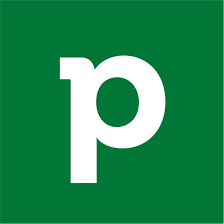The Best Online Community Platforms of 2025


The best online community platforms have become a fundamental part in many business strategies. Consumers are increasingly searching for deeper relationships with brands, built on a sense of trust, affinity, and respect. Community platforms can help with forming these long-lasting connections.
These tools provide an environment where online educators can bring students together to discuss courses, or business leaders can form tribes of dedicated advocates. The right tools provide access to resources for community members, as well as helping them form relationships connected to the brand.
According to studies, online communities improve engagement by 21%. Plus, 68% of businesses say their communities help generate new leads, while 66% say it improves customer retention.
To help you discover the benefits of communities for yourself, we’ve tracked down some of the best online community platforms for 2025.
What are the Best Online Community Platforms?
1. Mighty Networks
Best Overall

Mighty Networks is more than just one of the best online community platforms, it’s actually an all-in-one solution for content creators and entrepreneurs looking to strengthen relationships with customers. The solution includes an online course builder, a website builder, editor, and content management system, as well as a membership and community platform.
The intuitive toolset comes with a range of ways to customize your experiences with communities. You can create member categories, sub-groups, and chat boxes. You’ll also be able to monetize you’re your platform in a variety of different ways. Thanks to an integration with Zapier, it’s also easy to link in a range of other tools.
Key Features
- Crucial analytics: Mighty Networks comes with access to data from hundreds of thousands of thriving communities. This makes it easier to make intelligent business decisions.
- Personalization: The scalable technology can personalize each member’s experience, suggesting relevant topics, groups, courses, and even other members to connect with.
- Community Design: The Community Design framework is backed by a decade of data and expertise, making it easy to create a high-quality community environment fast.
- Customization: You can adapt your communities however you choose with public, private, and secret virtual and local groups, community polls and questions, and leaderboards for gamification.
Mighty Networks Pricing

Mighty Networks offers a free trial to begin with, and discounts on annual packages. The annual packages include:
- Community Plan: $33 for native live streaming and video, chat and messaging, paid memberships, Zoom integration, and events.
- Business Plan: $99 per month for all the features of the community plan plus live cohort course creation, analytics, member data, and Zapier APIs
- Mighty Pro: Custom pricing for all the features of Business, plus your own app listing, branded app notifications, and strategy support.
2. Thinkific

Best for Community-Based Online Courses

Like Mighty Networks, Thinkific is a lot more than just a community platform. If you’re a teacher, or you have something valuable to share with your target audience, Thinkific will help you monetize your knowledge. The solution comes with a drag-and-drop editor for creating courses, a learning management system, and payment tools.
With Thinkific, you can create and share any kind of content you want, from videos to articles. Plus, there are templates to get you started, so you don’t need a lot of prior course creation knowledge. As an added benefit, you can customize every touchpoint, from course data, to chat boxes. The Thinkific system even integrates with tools like Shopify, Salesforce, and Mailchimp.
Key Features
- Course builder: A comprehensive drag-and-drop course builder with included templates helps you to create educational experiences with a variety of content types, including video.
- Data analytics: Keep a close eye on student performance and use your knowledge to improve your future course content, marketing efforts, and community conversations.
- Customization: You can offer a wide range of products and services with your own branding. You can even implement ecommerce tools to start selling instantly.
- Marketing and sales tools: Improve your chances of monetizing your community with everything from social media integrations to email automation.
Thinkific Pricing

There’s a free trial available for Thinkific. You’ll also have access to a full “free” package with one site admin account and limited courses for unlimited students. Paying for an annual plan gives you 20% off a month, with prices like:
- Basic: $39 per month with unlimited courses, students, and content, 1 site admin account, live chat support, a custom domain, and student email.
- Pro: $79 per month with all the features of Basic, 2 admin accounts, priority support, and single communities.
- Premier: $399 per month for all the features of Pro, unlimited communities, white labeling, and 15 group analysts.
3. Tribe
Best for SaaS and Software Companies

Tribe is an online community software solution designed specifically for audience relationship building, and nothing else. The solution is highly customizable, allowing for a completely white-labelled experience, where you can add all of your brand colors and logos easily. There are also tons of tools for customer engagement, including omnichannel notifications for members.
The communities you build will be able to log into their account using social media credentials, access self-service, and support tools, and provide feedback to your brand. There are options for implementing custom code scripts and tracking insights with Google Analytics. You can even build your own apps within Tribe.
Key Features
- Excellent user interface: You can make life easier for community members with controlled member access, reliable search functions, and moderation policies for control.
- Analytics: Insights into useful KPIs at a granular level make it easier to see what your communities really want from you and your brand.
- Customization: You’ll be able to implement custom code into your website, create your own community apps, and adjust branding, color, and layout schemes.
- Personalization: Make the community experience unique to your audience with personalized news feeds.
Tribe Pricing

You can start for free with Tribe for up to 100 members, with no credit card required. After this, annual packages are offered at a discount rate:
- Plus: $59 per month with 3 admin seats, apps, custom domain access, analytics, Zapier integration and up to 2,500 members.
- Premium: $299 per month for all the features of Plus, as well as SSO, no Tribe branding, API access, and up to 25,000 members.
- Advanced: $599 per month for all the features of Premium, plus 10 admin seats, advanced apps, email white labelling and 100,000 members.
- Enterprise: Custom pricing for all the features of Advanced with master service agreements, enterprise-grade security, and data residency.
4. Circle
Best for Ease of Use

While it’s tempting to look for the best online community platforms with a focus on feature richness, it’s worth valuing ease of use too. Circle, though not as advanced as some other options on this list, is ideal for beginners who want to make life easier. You can easily set up discussion boards, facilitate private messaging, and manage content.
Circle’s simplistic and modern design means administrators can moderate their communities, connect with their audience, and deliver a better overall experience for their members too. There’s a native app for the Apple ecosystem. You can also integrate your community into an existing website, product, or online course page.
Key Feature
- Intuitive interface: The intuitive backend makes it easy to create organized discussions, private spaces, rich posts and a content or resource library, as well as member directories.
- Engagement options: Find various ways to connect with your audience, including group chat rooms, live streams, events, and weekly digest posts.
- Monetization features: Create earning opportunities with paid memberships, recurring subscriptions, gated content, upsells, coupons, and discounts.
- Management options: Access thousands of integrations to expand your community and use tools for insightful analytics. There are even roles and permissions for teammates.
Circle Pricing

Circle’s pricing starts with a 14-day free trial so you can test the solution’s functionality. There’s no credit card required to get started. Paid plans include:
- Basic: $39 per month with discussions, profiles, events, private messaging, group chats, moderation, and a custom domain.
- Professional: $99 per month with everything in Basic, plus advanced analytics, API access, single sign-on and CSS customization.
- Enterprise: $399 per month for all the features of Professional plus concierge onboarding, priority support and a customer success manager
5. BuddyBoss
Best for WordPress

If, like many entrepreneurs, you already have a website you want to embed with community features, it makes sense to choose a solution that integrates into your existing investment. BuddyBoss is a plugin for WordPress which brings community functionality into your WordPress portal. Though the solution isn’t as advanced as some options, like Might Networks, it has a lot of functionality.
You can use BuddyBoss to set up personalized activity feeds and notifications for members, as well as group and private messaging. There are member directories, social groups and posts, and even access to live event hosting via Zoom. Buddy Boss is also one of the few community platforms to support other WordPress-based LMS (Learning Management Systems) through integrations with tools like LearnDash.
Key Features
- Course management tools: Aside from integrating with other LMS solutions on WordPress, BuddyBoss can also offer features like quizzes, certificates, and student dashboards.
- Personalization: You can create personalized experiences for your community members with event notifications, and dedicated content.
- Multiple engagement options: Users can add friends in the community, search for content, track activity feeds, and like or comment on posts. There’s also @mentioning available
- Creation control: You can create custom, private, public or hidden groups, and add organizers and moderators within a group with special permissions.
BuddyBoss Pricing

The pricing for BuddyBoss will depend on whether you want to create a website or app. You can design 1 site for $228, 5 sites for $288, or 10 sites for $388. All packages come with the same key features. For app design, prices start at $179 per month when paid yearly, and you can even have the app creation done for you.
6. PeerBoard
Best Free Plan

One of the easiest options for online community software on the market, PeerBoard allows companies to create forums, online groups, and other forms of community in no time. You can create an environment where customers can find content like articles, show personalized feeds to users, and even create private spaces for discussions.
PeerBoard also ensures you can design your community to suit your needs. You can choose between different colors and fonts to match website branding. There are also moderation tools for managing members. As an added bonus, PeerBoard naturally integrates with a range of popular tools, including WordPress, Thinkific, and Shopify.
Key Features
- Multiple Setup options: Leverage the PeerBoard API or SDK, create a subdomain on your own website or access the WordPress plugin, Shopify app, or Thinkific app.
- Content creation: Create a range of long-form articles, segmented spaces, and more with SEO enhancements to help your company rank.
- Member management: Keep track of your community, provide users with badges and roles, and moderate posts using a range of automated rules.
- Engagement options: Enable real-time comments, surveys for collecting feedback, and one-on-one conversations for customer service.
PeerBoard Pricing

PeerBoard is one of the best online community platforms for those in search of a generous free package. You can use the system with comprehensive privacy controls, custom domains, plugins, and theme customization for free. Paid packages include:
- Starter: $29 per month for up to 3 private spaces, API access and search.
- Professional: $79 per month for up to 30 private spaces, embedded code, and roles.
- Growth: $299 per month for SDK access, unlimited private spaces, batch API, webhooks and mobile app creation.
7. Discourse
Best Open Source

Discourse is phenomenal tool for creating online forum experiences with endless creativity. The 100% open-source platform means you can maintain complete control over your community directory and membership lists. You can create discussion boards and run and manage a forum easily within a convenient backend.
The Discourse ecosystem is designed to be easy-to-use and user-friendly, with a range of features like spam blocking, moderation, and notifications. There’s even an automatic trust system, which helps to ensure your conversations are beneficial, and keeps spam to a minimum. The open-source environment also integrates with tools like Slack, Zendesk, and WordPress.
Key Features:
- Convenient forum design: Customize your ideal forum space with branding to suit your business, single-sign-on, and mobile responsive designs.
- Integration opportunities: With a range of native integrations to leading tools and a powerful API, you can extend the functionality of your forum.
- Automatic trust system: Automatically flag and moderate content and highlight community members who might deserve extra permissions.
- Reporting dashboard: Insights into forum trends to help you learn more about your audience and power future discussions.
Discourse Pricing

While the software itself is free to use, you’ll still need to pay for hosting and maintenance for your forum. The prices for these services include:
- Standard: $100 per month for up to 100k monthly page views, 20GB of storage and unlimited members. You also get 5 staff users, SSL, and standard plugins.
- Business: $300 for all the features of Standard plus 100GB of storage, 500k monthly page views, 300k monthly emails, 15 staff users, and business authentication.
- Enterprise: Custom pricing for more than 3 million page views, 200GB+ of storage, 1.5million+ emails, unlimited staff members, and enterprise authentication.
8. Vanilla Forums
Best for Social Integrations

Vanilla Forums is similar in a lot of ways to Discourse, with an open-source version you can use to create solutions from scratch. The features you’ll get here are a little more comprehensive, however. You can create a knowledgebase help center within your community so customers can more easily serve themselves. There are also discussion and Q&A boards available.
Vanilla Forums takes extra steps to make companies as successful as possible when they’re creating new communities. There’s a dedicated customer success team on-board to guide you through the launch of your community, and help you set strategic paths for the future.
Key Features:
- Custom branding: Match your brand guidelines with themes and design changes. You can also integrate your community directly into your existing website.
- Social login and SSO: Give your members and moderators more options for accessing your community with single-sign-on, and social logins.
- Multiple engagement options: Create your own question and answer system, design events, and create gamified campaigns to connect with customers.
- Customer success: Access a dedicated customer success team to help you develop the perfect plan for business growth.
Vanilla Forums Pricing

Vanilla provides flexible packaging and plans for mid-sized companies, up to larger enterprises. There’s also the option to access a dedicated success team manager. However, the company doesn’t provide any transparent pricing on the website.
9. Slack
Best for Professionals

Slack is one of the most well-known environments for community building in the modern world. The solution has quickly emerged as a go-to environment for professional collaboration and communication in recent years, particularly during the pandemic. Slack allows companies to organize users into channels, where they can have public and private discussions, huddles and more.
You can set up video meetings in slack, share content and links, and even design workflow automations to make teams more productive. There are also in-built security solutions like enterprise key management to keep conversations secure. Slack also integrates with a wide variety of other tools, such as Google Drive, Office 365 and Zoom.
Key Features
- Multiple communication methods: Create channels inside of your business and outside with Slack Connect and enable group or private messaging. Audio and video are available too.
- Workflow builder: Automate routine actions and communications to make team members more efficient during collaborative sessions.
- Security: Protect your data at every layer with enterprise key management, encryption, and dedicated solutions for the Enterprise.
- Knowledge management: As well as sharing files, you can also store information and search for previous conversations quickly.
Slack Pricing

Slack’s pricing options start with a free package for unlimited private and public channels, 10k of searchable messages, voice and video, and file sharing. Paid packages include:
- Pro: $6.67 per member with unlimited messages archiving, unlimited apps, and group video calling opportunities.
- Business+: $12.50 per member with SAML-based SSO, 99.999% uptime guarantees, and data export options.
- Enterprise grid: Custom pricing with unlimited workstations, advanced security features and compliance capabilities.
10. Facebook Groups
Best for Organic Audience Growth

Probably one of the simplest solutions for online community building, Facebook Groups has been helping companies to connect with their communities for years. This environment allows entrepreneurs and other business leaders to create a space where like-minded people can talk, browse through content, and discover new insights from your brand.
Facebook Groups are great for boosting awareness about a company, as well as for gaining insight into customer needs and preferences through social listening. You can even assign roles like “mentor” to your most loyal members.
Key Features:
- Engagement options: Connect with your customers through posts, likes, and comments. Create questionnaires, and even host live video streams.
- Reporting and analytics: Learn more about the posts your audiences engage most with and collect information to help build your buyer persona.
- Membership controls: Assign different roles and privileges to people in your team and your community to improve buy-in.
- Real-time messaging: Communicate with members in real time through an easy-to-use chat system.
Facebook Groups Pricing
Facebook Groups is free to use, but you might need to pay if you want to create ads within the Facebook landscape to promote your group. You won’t be able to customize your environment much for branding purposes either.
The Best Free Online Community Platform
There are a handful of online community software options on the market today you may be able to access for free. Many solutions come with free trials, so you can test the functionality of the service before you sign up for a paid package, this is the case with brands like Thinkific and Mighty Networks.
Free forever plans are less common, but they are out there. There’s a free package for Tribe for up to 100 members, and PeerBoard has one of the most generous free packages on the market, with access to unlimited usage and a range of features.
However, while you might be able to get some functionality for free, the options available will be very limited. There’s a good chance you’ll need to compromise on the number of people who can join your community, as well as how much content you can share and store.
Free packages may also limit your branding capabilities, and prevent you from removing a community builder’s own logo from your environment. Generally, you’ll get far more advanced functionality and freedom from a premium package.
Online Community Platforms Guide
What Is an Online Community Platform?
The best online community platform is a solution which allows business leaders and course creators to create a safe, secure online space where members can interact with each other and the company. Some solutions come with simple forum and chat features, while others have member directories, content sharing, and a range of engagement options, like polls and quizzes.
The exact functionality of your online community software will depend on which solution you choose. Tools like Thinkific focus more on creating communities for students of online courses, with tools for building your course built-in. Solutions like Discourse provide a more basic forum environment for community chat.
What Are the Benefits of an Online Community Platform?
An online community platform provides businesses with all the tools they need to build a dedicated tribe of followers and advocates for their companies. There are tools for facilitating engaging discussions around your brand, and boosting your chances for customer loyalty.
Customer brand communities can help with social listening, so you can learn more about what your audience needs from your company, as well as self-service thanks to knowledgebases.
The more engaged your customers become in your community, the more connected they’ll feel to your business overall. With an online community platform, you can:
- Build more meaningful experiences and relationships with customers
- Generate leads and acquire more members to become future advocates
- Support customer service teams with self-service solutions
- Increase revenue through in-community promotional strategies
- Give your advocates a voice to help them market your business
- Grow your organization and unlock new forms of monetization with subscriptions
What to look for in an online community platform
The exact features you’ll need from your online community platform will depend on what you want to accomplish with your new ecosystem. In general, the most important features will revolve around engaging and managing your community members.
Some of the most important tools to look for include:
- Engagement options: Look for various ways to engage your customers through polls, quizzes, live video streams, and even course creation tools. The more engaged your followers are, the more likely they are to keep visiting your community and helping it grow.
- Member management: Tools like member directories and the ability to segment your community ensures you can keep a close eye on your followers, and personalize their experience. You can even send specific content to certain groups.
- Analytics and insights: Communities need to be constantly nurtured to ensure future growth. Analytics and insights will show you what sorts of content your customers engage with most, as well as what kind of people you’re likely to attract.
- Security and privacy: Good community platforms should come with a range of tools for security and privacy, including encryption, single sign on tools, and account access controls for team members.
- Customization: Your community environment should be unique to your brand. Look for ways to add your branding to your community environment, like changing colors, fonts, and uploading logo files.
Online Community Platforms FAQ
Q: What’s the difference between a community and membership platform?
A community platform is committed to helping companies build social sites which bring individuals together to discuss common topics. A membership platform is more focused on controlling access to certain content. There are fewer features in a membership platform to help members form relationships with each other.
Q: Why are community platforms important?
Companies can use online communities to build better relationships with customers and members. This translates into better brand loyalty, greater customer lifetime value, and more opportunities for upselling and cross-selling.
Q: How do you grow a community platform?
The best way to grow your community platform is to make it as engaging and valuable as possible. Measure analytics regularly, and make sure you adopt a strong community culture. Go above and beyond to make sure your members feel included.
Choosing the Best Online Community Platforms
The best online community platforms come in a range of shapes and sizes to suit different needs. Finding the right option for you means exploring all of the different products out there, and deciding which features you need to prioritize. Some great options include:
- Mighty Networks: The best overall community solution with its own website builder
- Thinkific: The ultimate community-building tool for course creators.
- Tribe: A fantastic environment for SaaS companies with custom code scripting
- Circle: One of the easiest platforms to use for community building
- PeerBoard: A great tool for beginners looking for a free plan
Which are your favorite community platforms? Share your experiences in the comments below.
Related Products




